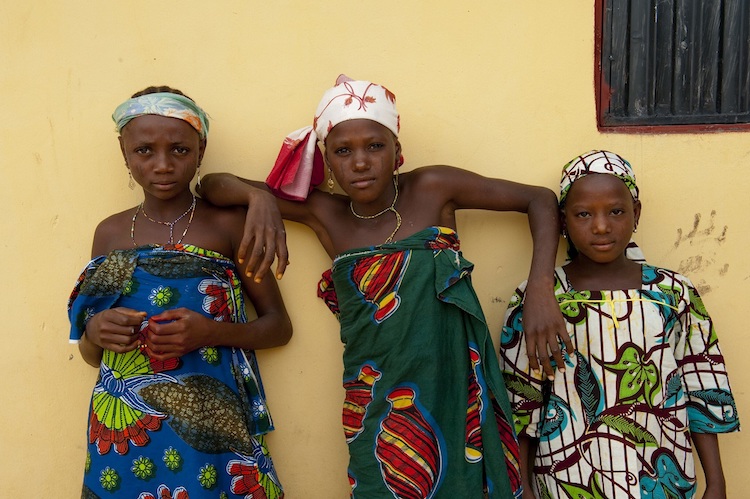
By Kwame Buist
LONDON (IDN) – Of the estimated 20-40 billion dollars stolen annually from developing countries and hidden abroad every year, a small proportion is sometimes successfully confiscated and returned to the country it came from.
However, where institutions of accountability do not work well, this poses a complex problem: how to make sure that the money is not embezzled again, and actually benefits the real victims of corruption – the ordinary people whose state finances were plundered.
Take one case, Nigeria, where plans are under way to distribute 322 million dollars recovered in Switzerland from the late General Sani Abacha, the country’s former military ruler who is suspected of looting between three and five billion dollars in public money.
In 2006, 723 million dollars illicitly acquired by Abacha’s family was returned to Nigeria from Switzerland. With a significant amount of these funds remaining unaccounted for, that experience led Switzerland to attach conditions to the repatriation of this batch of Abacha loot, including third party oversight – meaning that the World Bank will now monitor the distribution of the funds.
Under the deal, around 300,000 poor families in just over half the 36 states in Nigeria will each receive approximately 14 dollars per month through the Nigeria National Social Safety Net Programme. However, this cash-transfer model has proved controversial, in part because of documented problems with how the programme operates.
According to the African Network for Environment & Economic Justice (ANEEJ), the deal is a “forced choice”; in order for the World Bank to effectively monitor the process, the funds have to be channelled through an existing programme of the Bank of Nigeria, such as the safety net.
At the same time, the agreement also explicitly provides for civil society to monitor the use of the returned funds. This is an essential factor for reducing the risk of corruption. The use of electronic transfers will also provide an additional layer of security.
Nonetheless, the Civil Society Legislative Advocacy Centre (CISLAC), the Nigerian international chapter of Transparency International – the international NGO founded as a global coalition to combat corruption – says it is concerned about a lack of parliamentary and public approval of the distribution scheme.
CISLAC has repeatedly called for a trust fund to be set up to manage the repatriated assets, and other assets seized within Nigeria (repatriated assets from abroad account for only 10 to 15 percent of all assets seized since 2015).
“We are supporting [the] government in this recovery but with the condition that there must be an establishment of [an] integrity trust fund that would manage this money and assets,” Auwal Musa Rafsanjani, CISLAC’s executive director said in a recent interview. “We want to ensure that we have an institutional framework that would monitor the recovered assets in Nigeria.”
CISLAC wants the right mechanism in place that would guarantee that repatriated money is not re-looted. It also wants to make it impossible for people to continue to loot in Nigeria and bring it to America or other Europe countries.
“Nigeria and African countries have been victims of illicit financial flow, so we want to collaborate with local NGOs in America to ensure that the opportunity of siphoning public funds is blocked,” said Rafsanjani.
“Currently, Nigeria has no framework for monitoring, managing and utilising recovered assets and other proceeds of crime,” according to Vaclav Prusa, an anti-corruption expert at CISLAC.
“This has resulted in a lack of coordination among the numerous agencies with the mandate to recover assets. Tied to this lack of coordination is the absence of a central register or database for recovered assets. This has made it impossible to ascertain the amounts of recovered assets and proceeds of crime.”
CISLAC wants to see an institution in Nigeria tasked with the management of all recovered assets, with clear guidelines for use of the money and transparent management of all finances. Crucially, civil society organisations would have a seat on the board of such an institution, so that their role is institutionalised and sustainable.
At present, civil society oversight of the Abacha loot distribution is dependent on international development funding. The Nigerian Extractive Industries Transparency Initiative (NEITI) offers a precedent of such a mixed governmental and non-governmental model.
Efforts to determine the best practice for returning stolen assets are complicated by a lack of empirical evidence to draw from. “Asset recovery has seen limited return compared to the vast amounts stolen, but the stakes are high every time,” said Patricia Moreira, managing director of Transparency International.
“A poorly planned solution could not only see recovered assets fail to adequately benefit their rightful owners, it could become a flawed model for future cases.”
In Nigeria, further groundwork is needed in order to establish a framework strong enough to counter other countries’ demands for pre-conditions, and the compromises that go with them.
“Civil society in Nigeria, including our partners at CISLAC, are ready to help the government build a sustainable, long-term solution to the question of stolen asset recovery and distribution,” added Moreira. [IDN-InDepthNews – 07 August 2018]
Photo credit: Transparency International
IDN is flagship agency of the International Press Syndicate.
facebook.com/IDN.GoingDeeper – twitter.com/InDepthNews











